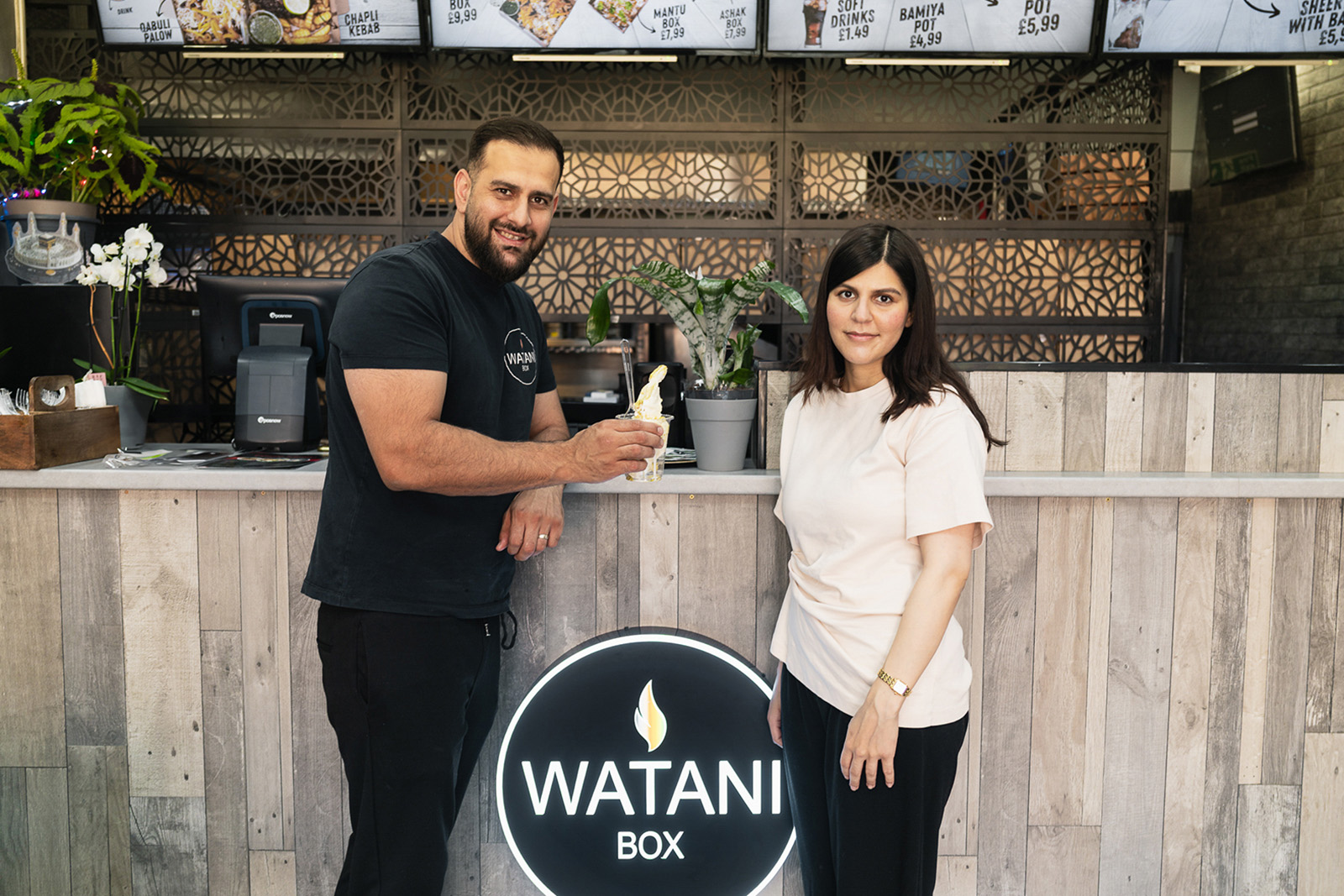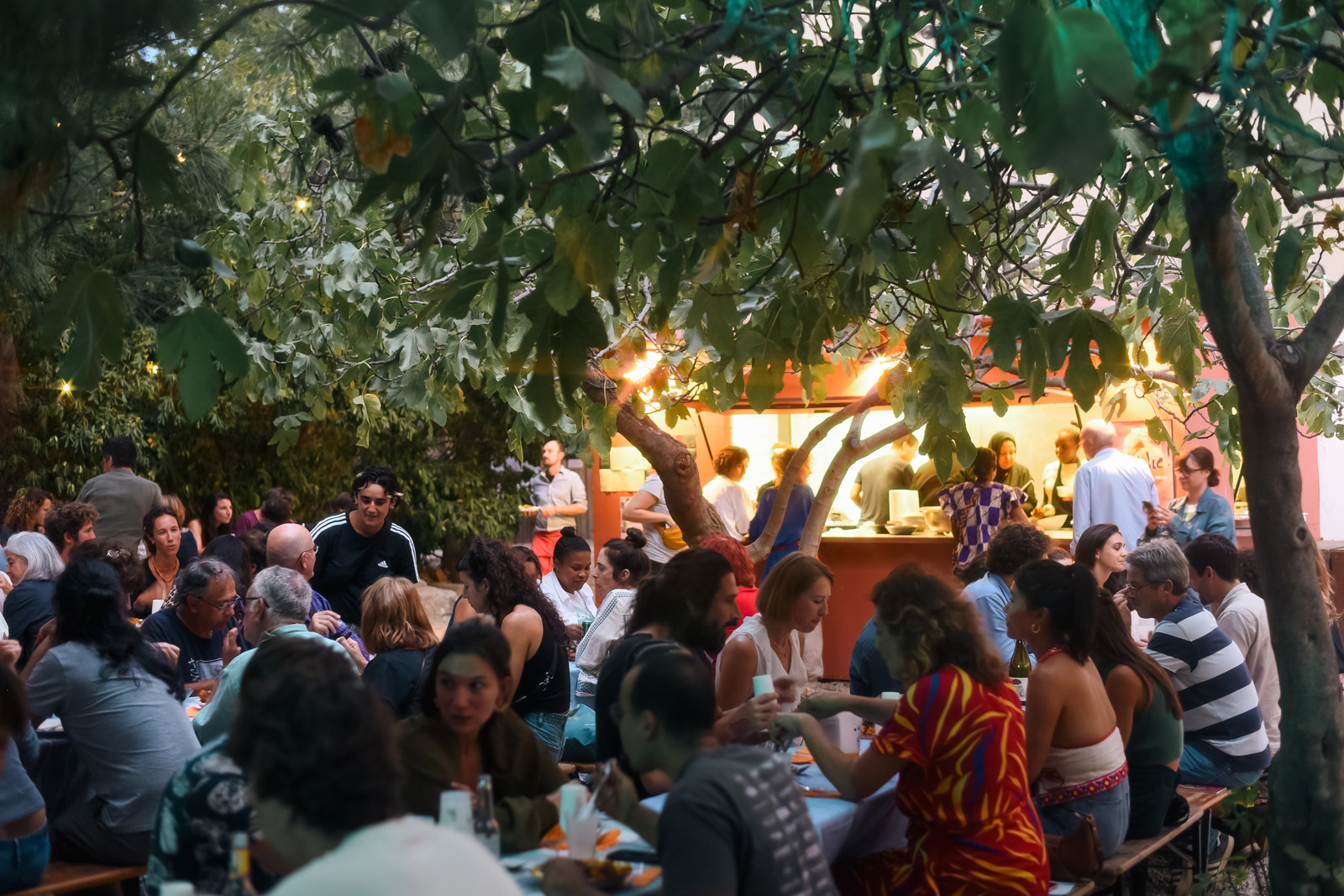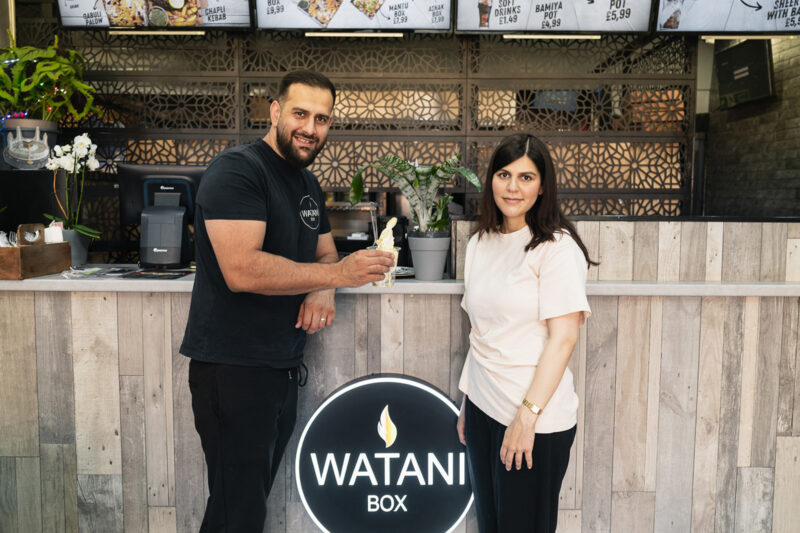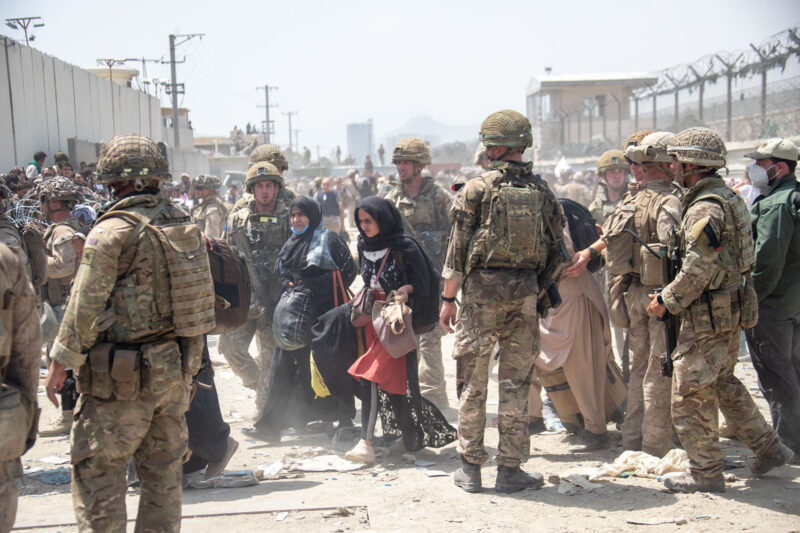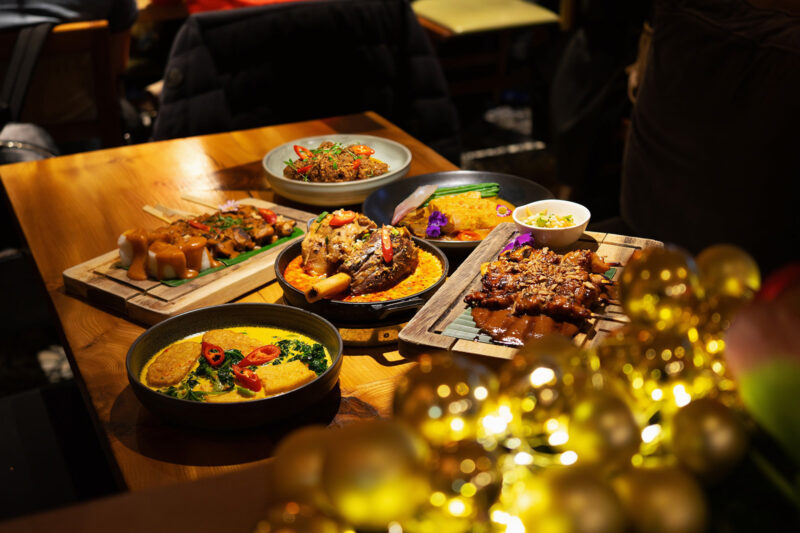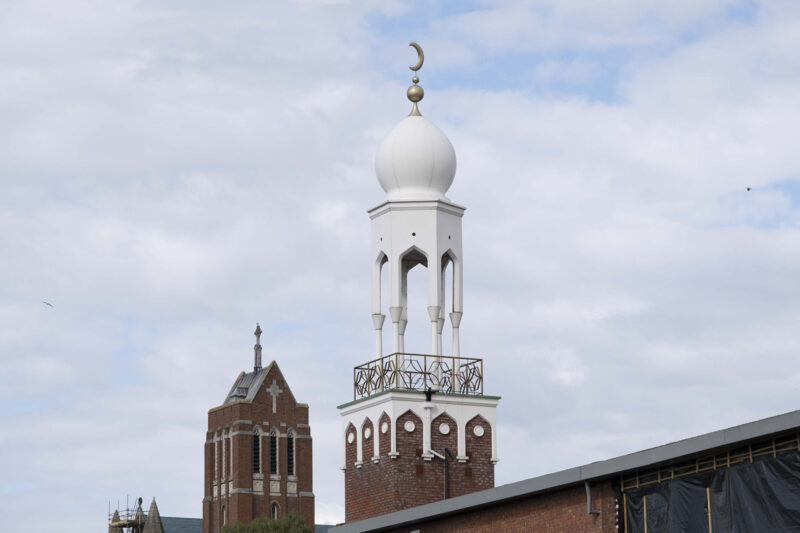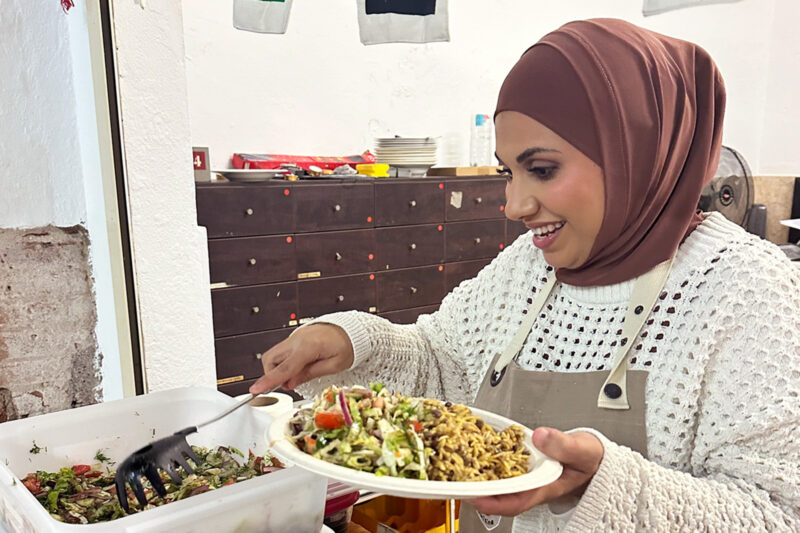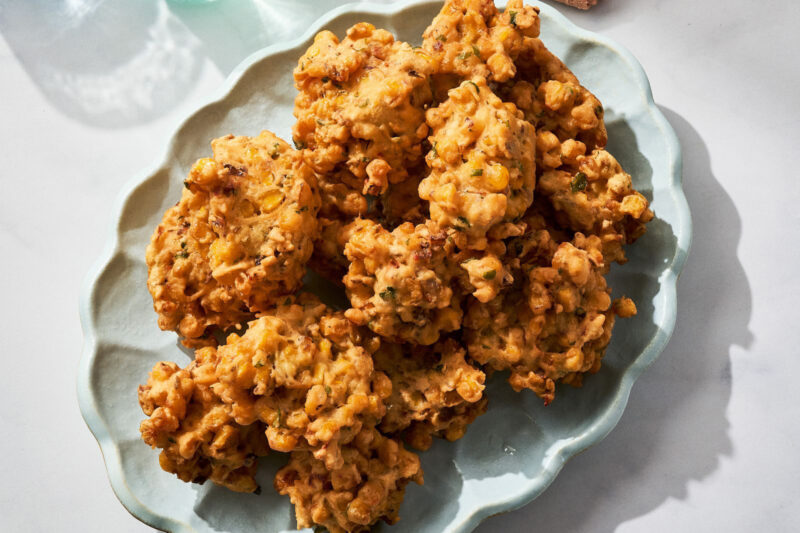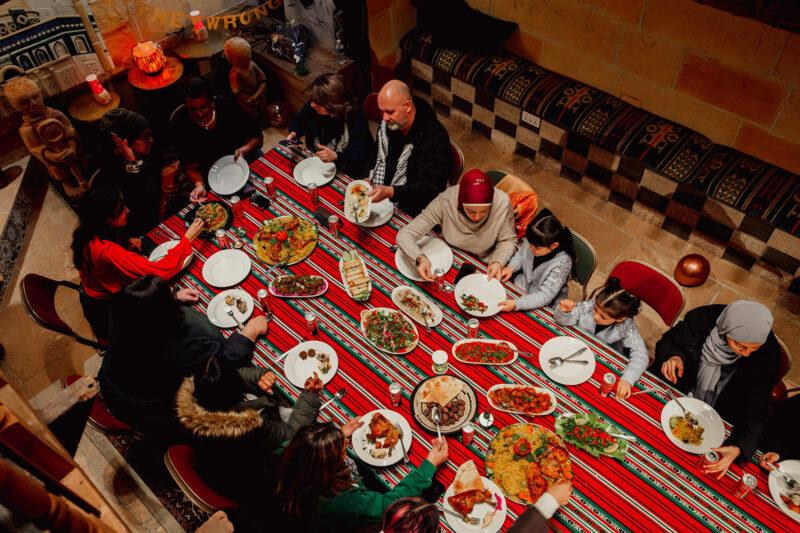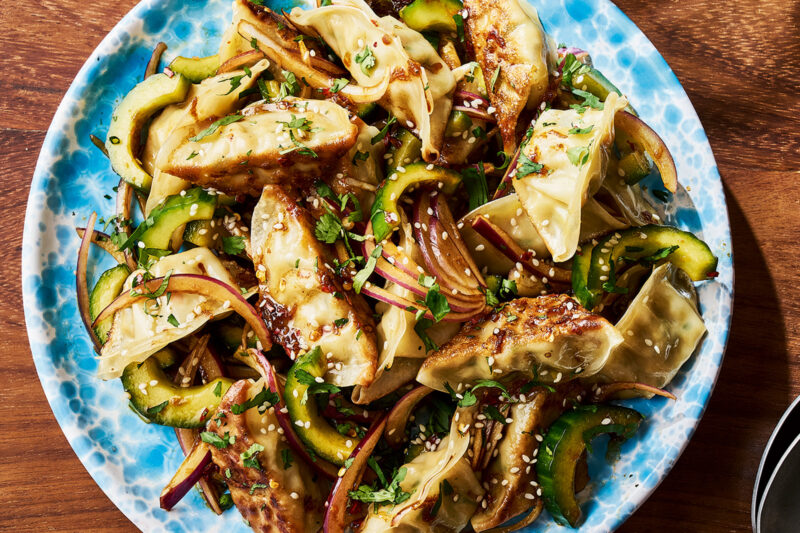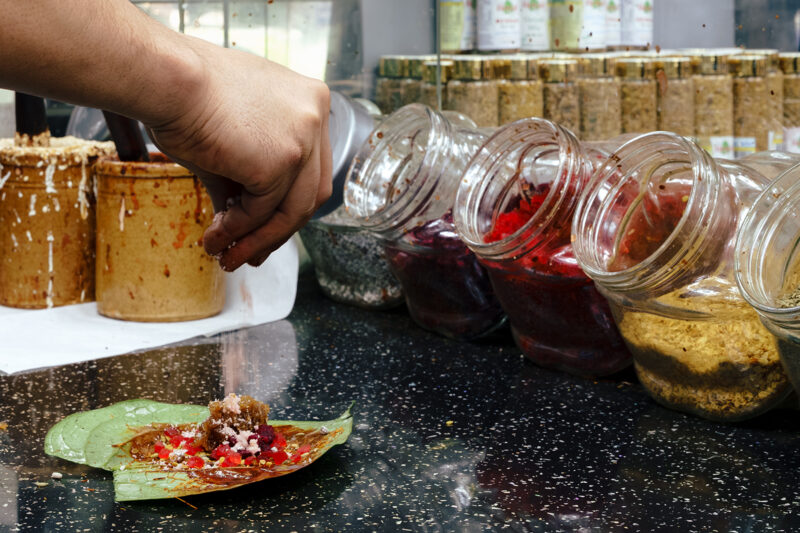Afghan food is revolutionising Manchester’s culinary scene
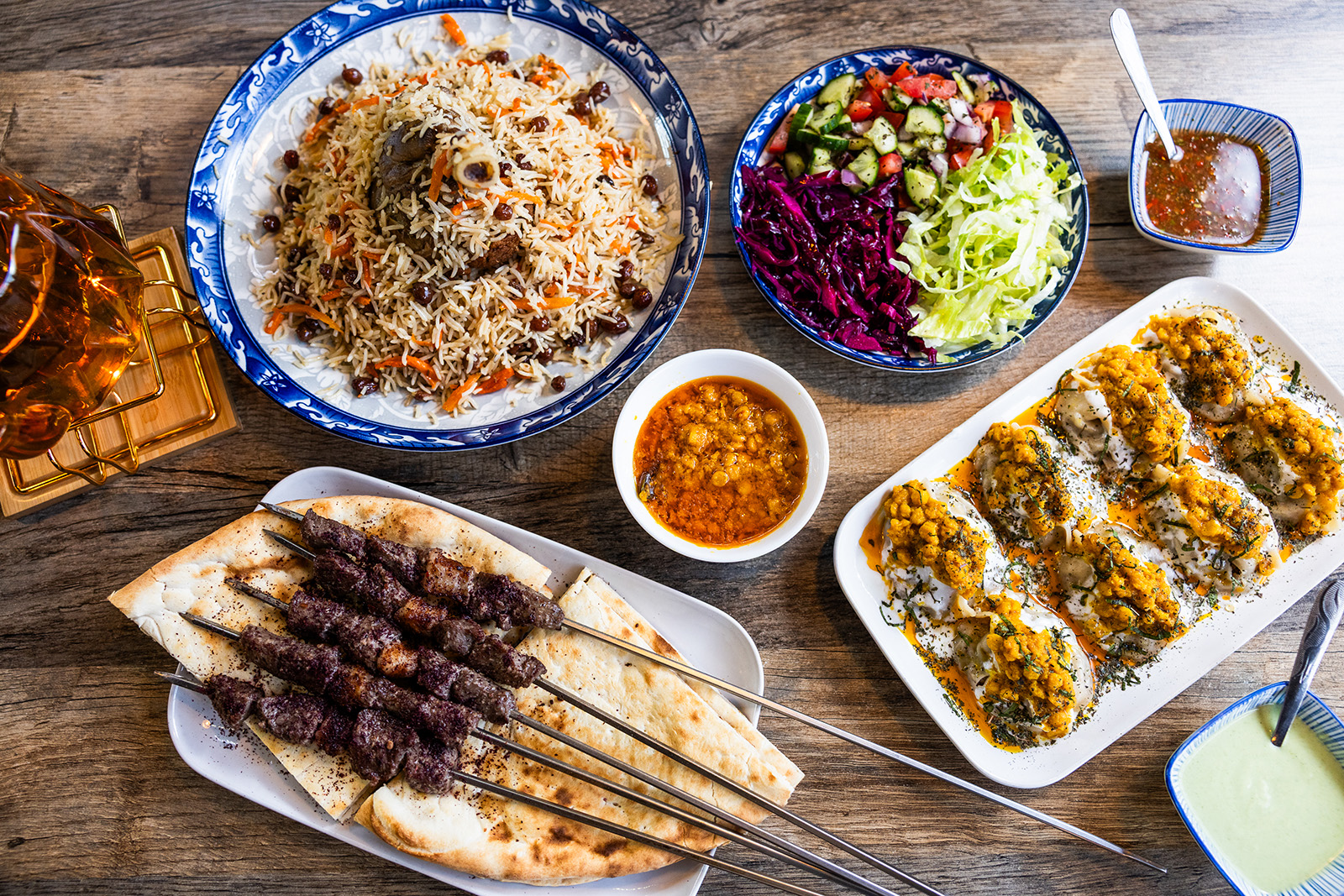
From standout rice dishes to fragrant stews and crispy stuffed flatbreads, the flavours of Kabul and beyond have found a new northern home
For years, Afghan food in the UK has sat in the shadows of better-known cuisines from its South Asian neighbours. Now, though, a new generation of restaurateurs are making their mark on Manchester’s culinary scene, offering flavoursome, subtly spiced dishes that appeal to diners of all backgrounds.
Al-Aqsa on Stockport Road in Longsight is one of the oldest Afghan food businesses in Manchester. It opened in 2003, around the time that thousands of people arrived in the UK, fleeing Taliban rule and the US-led invasion of their country. A joint venture between two local businessmen — one Afghan, one Kurdish — it was once the only place in the whole city serving kabuli pulao.
A staple of Afghan cuisine, kabuli pulao consists of rice cooked in a rich, fragrant lamb stock, topped with sweetened carrots and raisins. It’s hearty yet delicately balanced and, at Al-Aqsa, the sweet to savoury ratio is kept firmly in check. Served with a warm and nutty lentil stew, it’s long been a strong contender for the title of best rice dish in the city.
More recently, an increasing number of restaurants serving Afghan food have opened up nearby. Many of them have sought cheaper rents and less competition by setting up in Levenshulme and Cheetham Hill, away from the Curry Mile of Wilmslow Road.
In 1999, when Wahid Hakimi first moved to the UK from the city of Kunduz in northern Afghanistan, setting up a food business was the last thing on his mind. After university, he worked for an organisation supporting people seeking asylum, then as an interpreter. Eventually, he spotted what he believed was a gap in the market.
Despite the endless eateries lining Cheetham Hill Road — Pakistani and Turkish diners, burger joints, ice cream parlours, sleek fusion steakhouses and biryani stalls outside grocery stores — there was nothing that provided a taste of home for Afghans.
“That’s when I decided to start a restaurant and introduce Afghan food to the area,” Hakimi says.
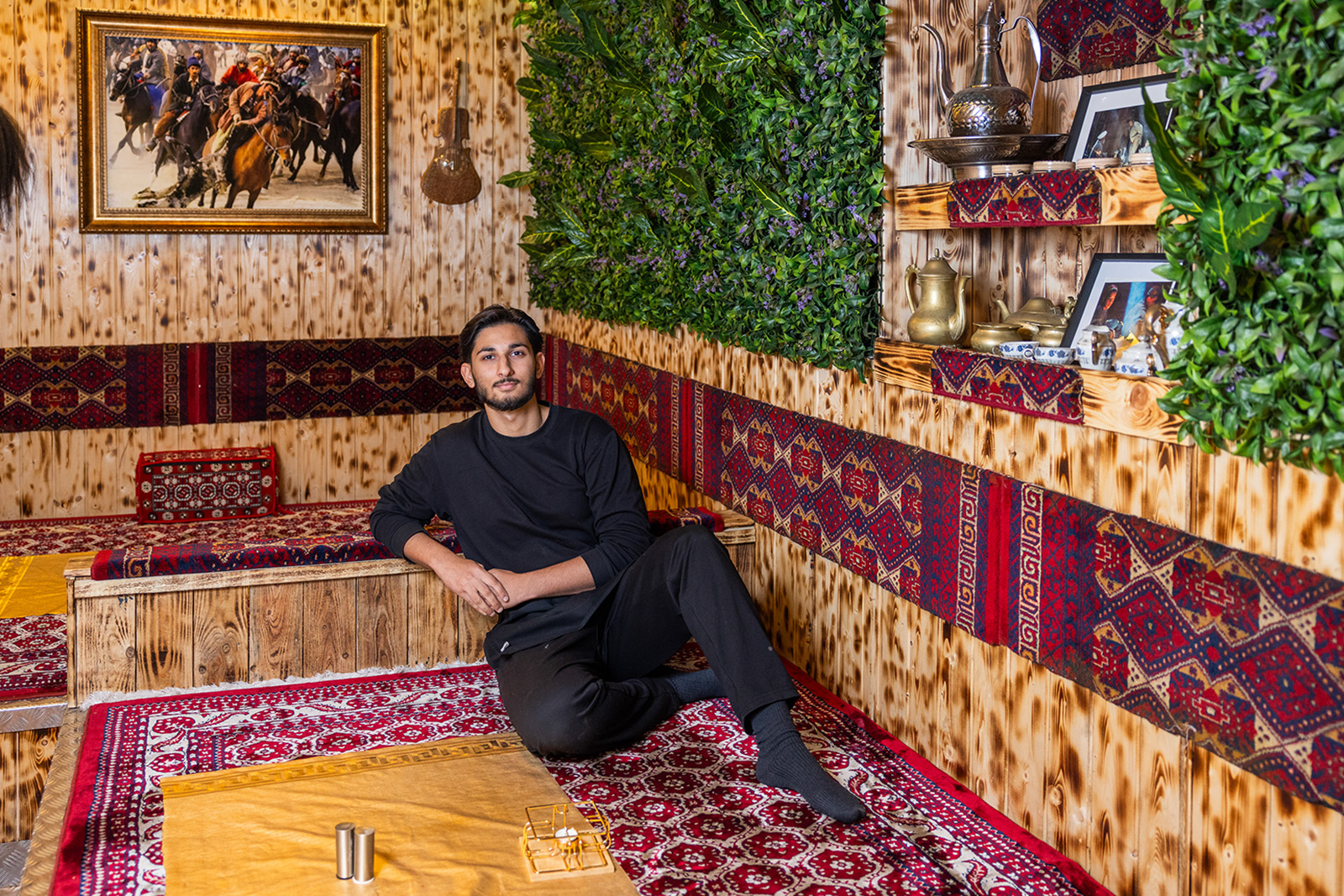
“We have a small menu but it’s pure Afghan,” Hakimi says. “We do a traditional kabuli pulao, a traditional lamb tikka, which no other restaurant in Manchester serves, and we make the dough for our mantu [stuffed dumplings] ourselves.”
Zamarud, which takes its name from the Pashto word for emerald, opened its doors in April. Its interior is a blend of modern and traditional: Instagram-friendly signs and foliage cover the walls at the front, while floor seating and portraits of Sharbat Gula — the Afghan Girl photographed by Steve McCurry for National Geographic — and buzkashi horse riders lie at the rear. Its food, places a strong emphasis on homemade authenticity.
Like all national cuisines, Afghanistan’s culinary repertoire draws influences from neighbouring countries and reflects the ethnic diversity of its population. Think of the grilled kebabs and herbaceous stews of Turkey and Iran, the plump and chewy dumplings of China and Central Asia, the complex karahis of the Indian subcontinent.
Hakimi, who runs the restaurant with his son Mustafa, has tried to reflect that plurality in his kitchen, hiring chefs from across Afghanistan who are each able to bring specific specialities and techniques to the operation.
“For each department, I’ve got a special chef from that area,” he says. “A chef from Jalalabad for the shinwari karahi, one from the north for the kebabs and pulao, and one from the south for our naan and chapali kebab. The way they make these dishes at home, that’s the way we’re making them in our restaurant, too.”
On a visit to Zamarud one evening, I ordered the chicken tikka kebab: two long skewers of minced poultry expertly cooked over charcoal. The meat was soft and smoky, perfect with a simple salad and a fluffy naan that was pleasingly crisp underneath from its time in the tandoor.
Afghan food, or at least what’s available in Manchester restaurants, isn’t especially vegetarian-friendly. That’s partly to do with the demands of running a restaurant. Grilled kebabs and pressure-cooked curries are far quicker and easier to produce than the complex plant-based stews that are also part of the nation’s menu. But it is also connected to the growing popularity of a particular version of Afghan cuisine popular just across its southern border.
Pashtuns — Afghanistan’s largest ethnic group — make up 15% of the 251 million population of neighbouring Pakistan. Pakistan is also home to around four million Afghan immigrants. In restaurants across the country, from Islamabad to Karachi, Afghan cuisine is defined by enduring stereotypes of Pashtuns as a warrior people who enjoy a highly calorific, meat-centric diet in order to survive the harsh winters of their homelands in eastern Afghanistan and the Khyber Pakhtunkhwa province of Pakistan. Most of the Afghan chefs and restaurateurs in Pakistan also come from the Pashtun Shinwar tribe, within which lamb is central to culinary tradition.
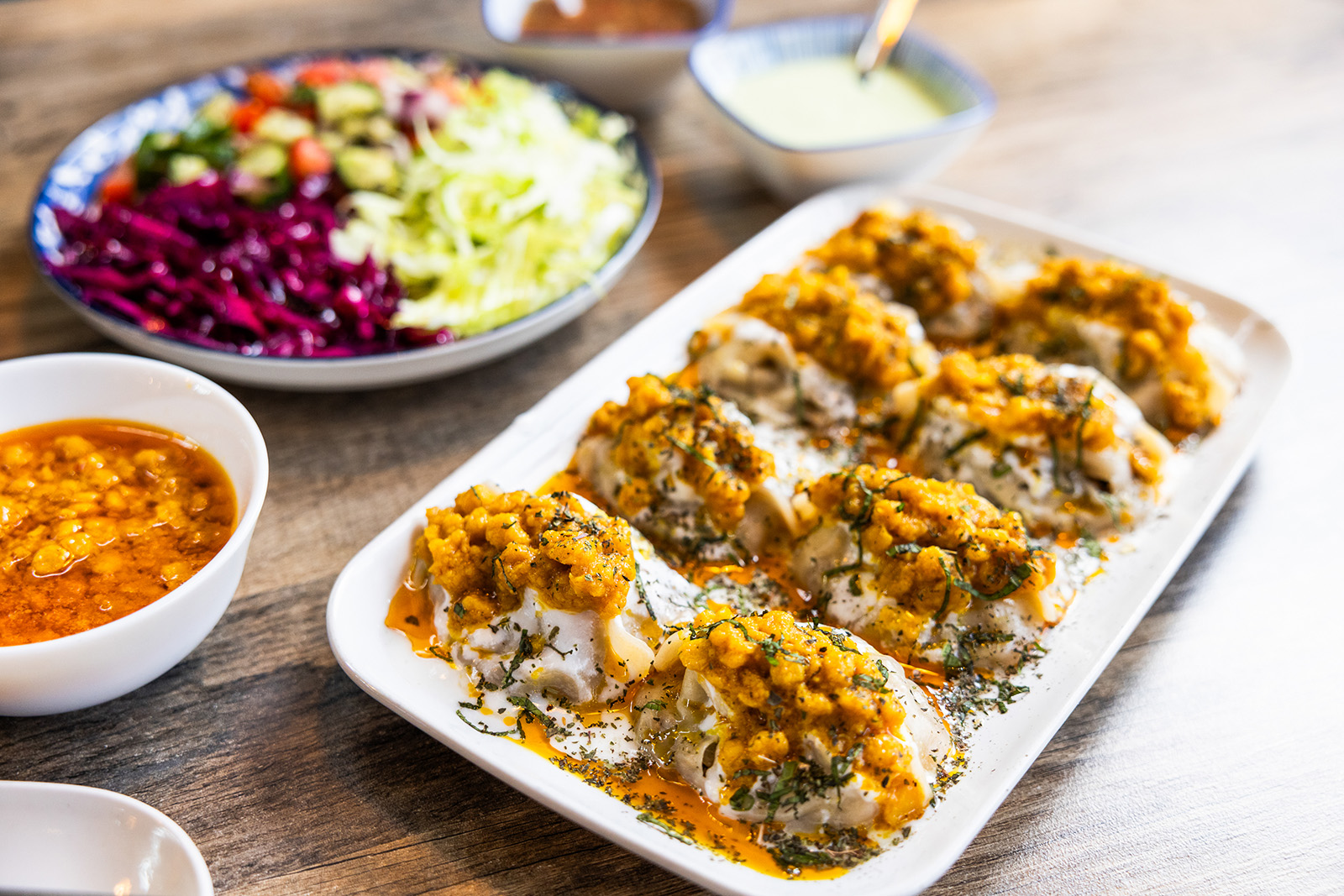
In Manchester, Zamarud has proved extremely popular with the city’s non-Pashtun Pakistani residents, who are drawn to the restaurant’s deeply layered flavours and judicious use of spice. “Our Pakistani customers comment on Afghan dishes having less masala than Pakistani food,” says Hakimi. “It’s not as heavy, it’s milder and it uses all fresh ingredients.”
On a recent visit to Kabul Karahi & Grill, a restaurant so small, dark and narrow you could almost miss it among the many other Afghan-run establishments on Stockport Road in Levenshulme, I had one of my favourite meals of the year. The disc-shaped chapali kebab is the perfect texture: golden and crunchy on the outside, soft and almost pillowy minced lamb on the inside, studded with zesty coriander seeds and finely chopped tomato. The accompanying tomato-based chutneys, meanwhile, have a similar herbal freshness and tang to that of the best Thai salad dressings.
The chicken charsi karahi, a cannabis-related name coined by chefs from Peshawar in honour of the dish’s addictive qualities, is incredible. A dry curry with simple spicing, it incorporates fresh tomatoes cooked down with plenty of garlic until they create a rich, red, barely-there sauce that clings to the meat. Cracked black pepper provides an aromatic heat, in the way regional food would have been flavoured before chillies made their way from South America to Asia in the late 15th century.
True to the Pakistani influence on Afghan food and the fact that culinary traditions rarely remain static or confined by borders, in both Zamarud and Kabul Karahi & Grill I was asked how spicy I wanted my curries and all of the karahis came out adorned with chopped green chillies and bright slivers of ginger.
At Kabul Bakery, however, 45-year-old Syed Masood Sadat is doing something different. Sadat came to Britain in 2000 as a refugee from Wardak province, south of Kabul. “Initially, I was refused by the Home Office, but I’m a stubborn guy,” he says, laughing.
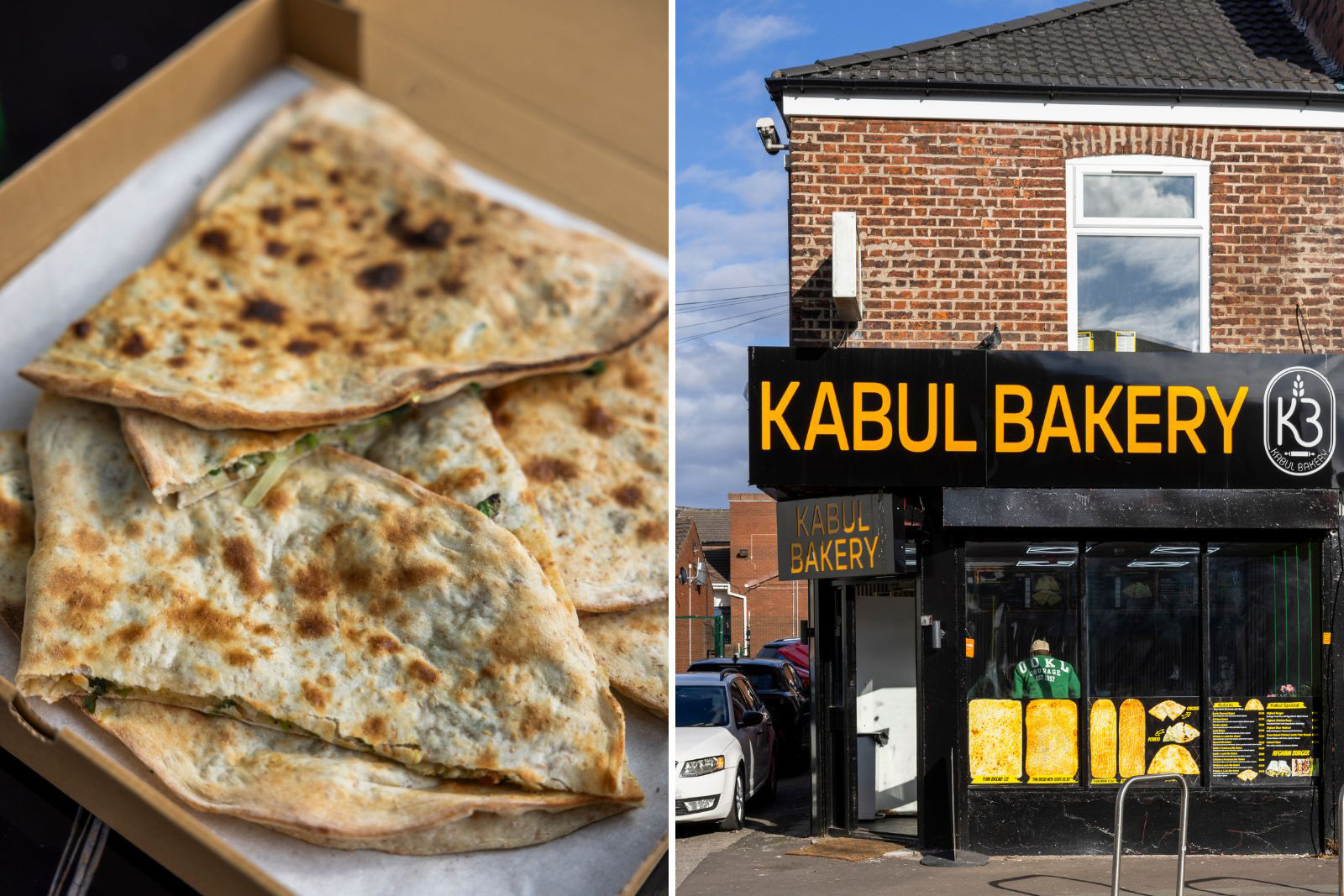
Sadat is a man of many talents and experiences. He studied business and law, then international relations at the University of Middlesex, before spending several years running a successful car rental business. In 2008, he decided to return with his family to Afghanistan and help to rebuild the country. While living in Kabul, he worked in higher education, eventually becoming the chancellor of a private university. In 2015, though, when Taliban insurgents began a series of high-profile kidnappings, he decided to return to the UK.
After initially settling in London, Sadat moved north to be closer to his extended family. In Manchester, he spotted an opportunity. There was a sizable Afghan community, many of whom had been relocated by the UK government after the withdrawal of western forces from Afghanistan and the subsequent collapse of the democratic government in 2020. There were, however, few food businesses that catered directly to them.
After testing a series of products in his home kitchen, Sadat began to sell fresh Afghan bread from the back of a mini-market on Mauldeth Road in Ladybarn. “The Afghan-style bread is different because we use a combination of four different types of flour, so it’s more easily digestible and it keeps for months,” he says.
The business was met with considerable enthusiasm, so he added a selection of bolanis to the menu — stuffed flatbreads that are the quintessential street-food of Kabul. My leek and potato version was made to order and came out thin, blistered and crispy, with a lick of ghee brushed over for shine. It was simple yet delicious, reminiscent of both the onion pancakes and guo tie dumplings of central China. According to Sadat, bolanis are also healthier than Pakistani parathas because they are oven baked, not fried.
“Everybody loves our products. Afghans and Pakistanis, yes, but all nationalities — Chinese, Germans and Russians. Bread is universal,” he says. They have been such a runaway success that Sadat recently opened a second branch of Kabul Bakery in Levenshulme.
He has added other low-calorie items to his menu, including Afghan burgers and oven-baked chicken, and imagines his existing businesses as the start of a chain of healthy Afghan bakeries. “I’m hoping, within the next two years, we’ll have 10 branches in Greater Manchester, inshallah,” he says.
 Newsletter
Newsletter


